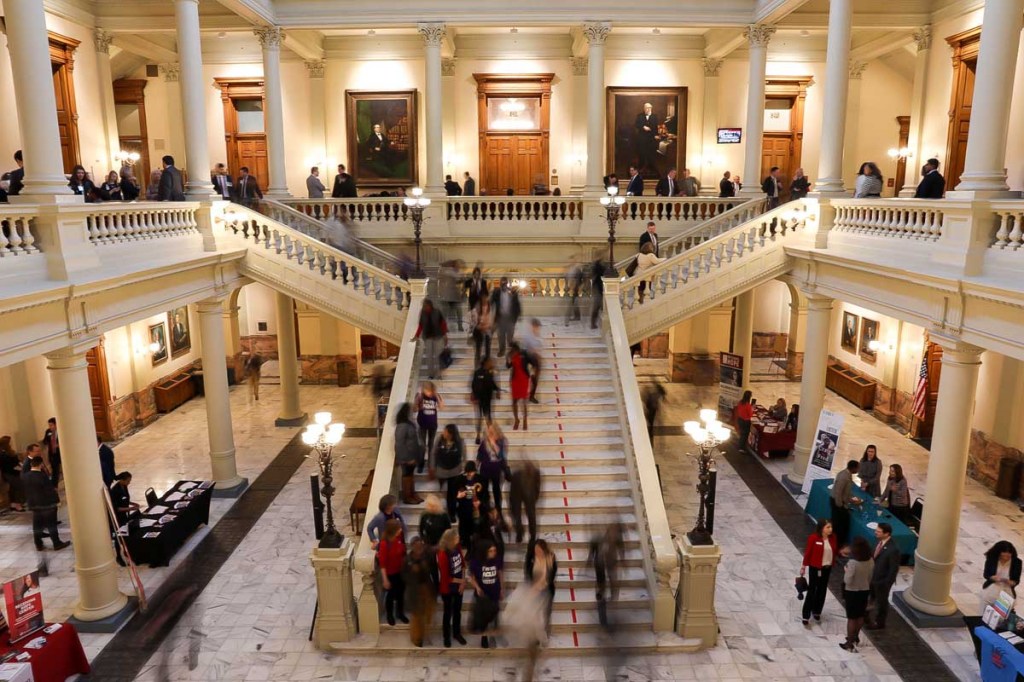State may use up to $1.5B of reserve funds by end of June
Published 3:00 pm Wednesday, May 13, 2020

- The Capitol Building bustles with lawmakers and lobbyists on the first day of the 2020 legislative session in Atlanta on Jan. 13.
ATLANTA — Lawmakers will likely need to use more than a billion dollars from the state’s rainy day fund to offset the economic impact of COVID-19.
In the second Joint Appropriations meeting Wednesday, lawmakers began to formally unpack the Fiscal Year 2021 budget. Jeffrey Dorfman, state fiscal economist, said his best estimate is the state will need to use $1 billion to $1.5 billion from the revenue shortfall reserve this fiscal year.
Trending
The state’s rainy day fund stands at $2.7 billion — a number that could be depleted by more than half before June 30.
Dorfman told lawmakers he expects tax collections to continue being low through the first quarter of Fiscal Year 2021.
“We expect we are near the bottom now, but it will take us a little while to get back to normal,” he said.
The state announced last week that April tax collections were down more than $1 billion — or 35.9% — which is predicted to be worse next month since the state didn’t start shutting down businesses until mid-March.
The federal delay of tax income filings from April to July 15 has hit the state hard — Georgia saw 526,000 fewer individual income tax filings this April compared to last year.
Dorfman said the “best estimate” is the state could see about $1.35 billion in tax revenue delayed because of the shifted deadline but he expects to be mostly recouped by July.
Trending
Lawmakers also questioned the economist about a possible housing market crash — which Dorfman doesn’t expect.
“With all the aid that the federal government is pumping out and with the economy reopening,” he said. “I think housing prices will stay the same.”
Inflation does not seem to be an issue and is not predicted to be unless the state sees mass factory closures, he said. But so far the nation’s supply chain has remained resilient.
How fast the economy will bounce back is largely dependent on consumer habits — whether or not Georgians feel comfortable returning to restaurants and other businesses. Dorfman said there is little data predicting when consumers will return to normal, but said “some people are still waiting.”
During the last appropriations meeting, the economist referenced a poll that still shows widespread fear of using public transit, going to malls and taking vacations.





